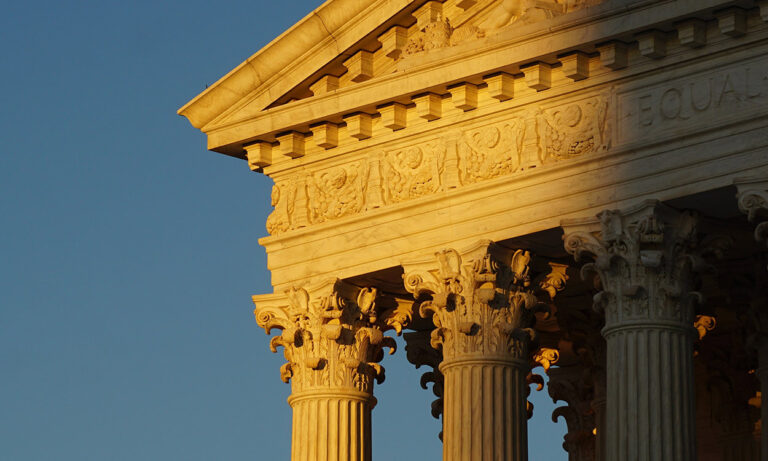The US’ most conservative Supreme Court wants to ditch race-based college admissions
In June 2022, the US Supreme Court demolished a 50-year-old law once considered unbreakable: the constitutional right to abortion in the country. The overturn of Roe v Wade signified the end to responsible reproductive rights while simultaneously heralding the beginning of one of the most conservative Supreme Courts the US has witnessed in almost a century. Now, it seems that the court is continuing down the same road as it was recently announced that it is now considering throwing out another hallmark ruling: affirmative action.
On 31 October 2022, The New York Times reported that the Supreme Court prepared to officially rule that all race-conscious admissions programmes at Harvard—one of the nation’s most prestigious colleges—and the University of North Carolina were unlawful. If such a decision should in fact proceed, it would directly jeopardise affirmative action at a number of colleges and universities across the US. Most significantly, it would massively decrease the representation of black and Latino students.
What is affirmative action?
For those of you who might be unaware, affirmative action was introduced to the US in the 1960s in attempts to not only ensure companies did not discriminate based on race, but to also encourage and facilitate measures that would include high numbers of racial minorities within job pools.
Often misrepresented as “preferential treatment,” affirmative action is in fact a highly successful way in which to allow diversity and representation to flourish in the workplace—these schemes have also led to higher percentages of women and disabled individuals being hired by employers.
The most conservative court in 90 years
As emphasised by the New York Times analysis, the Supreme Court’s conservative supermajority is pushing forward with its blanket agenda—a complete overhaul of the court’s past liberalism. The most conservative leaning members are Clarence Thomas, Samuel Alito, Neil Gorsuch, Brett Kavanaugh, and Amy Coney Barrett. This ever-looming preponderance has been partially the result of former president Donald Trump who, during his term, appointed Gorsuch, Kavanaugh, and Coney Barrett.
NPR has provided comprehensive data on the significant impact these conservative appointments have had since 2018. Statistics compiled by professors Lee Epstein of Washington University in St. Louis and Keven Quinn of the University of Michigan have discovered that the current court has produced more conservative decisions this term than at any time since 1931.
Even more worryingly, in an astounding 62 per cent of the decisions, conservatives prevailed, and more importantly, often prevailed in dramatic ways.
Many of the current serving justices have made headlines for their divisive views. Kavanaugh, for example, faced decades-old sexual misconduct allegations during his appointment proceedings and, according to PBS, despite high-ranking Democrats such as Elizabeth Warren calling for his impeachment, the American lawyer was confirmed in 2018.
Another highly controversial figure is Thomas, who is one of the most senior individuals on the court. Appointed in 1991—despite facing his own sexual harassment allegation from his former advisor Anita Hill—Thomas made a number of statements regarding his plans to make the lives of liberals miserable for at least 43 years, as reported by The New York Times.
It should be noted that, when questioned upon his thoughts on the affirmative action case, Thomas publicly stated he doesn’t “have a clue” as to what diversity means anyways.
Back to the present day, another growing concern for the public is the lack of middle-ground within the court. Both sides are so far from one another that very rarely is a centre—aka neither extremely conservative or liberal—met.
What is the current debate surrounding affirmative action?
From what we know, the current theme among the conservative members of the court is that educational diversity can be achieved without directly taking race into account, and that at some point universities and colleges will need to stop making such distinctions.
However, as reported by the New York Times, on the other side, Sonia Sotomayor—one of the liberal justices—stated that “race does correlate to some experiences and not others.” She continued: “If you’re black, you’re more likely to be in an under-resourced school. You’re more likely to be taught by teachers who are not as qualified as others. You’re more likely to be viewed as having less academic potential.”
Furthermore, Ketanji Brown Jackson—the court’s newest liberal judge—said that “it would be odd if admissions officers could consider factors like whether applicants were parents, veterans or disabled, but not if they were members of racial minorities.”
Since her confirmation, liberals have taken some solace in the fact that Justice Brown Jackson does not go lying down. In relation to the affirmative action case, Forbes highlighted the ways in which she was fighting her case by “trying to speak her colleague’s language,” appealing to their favourite constitutional interpretation: originalism.
The publications clarified, going on to say the theory states that the Constitution should be interpreted through the eyes of the people who originally voted for the Constitution and its subsequent amendments.
What does the future hold for affirmative action?
On average, it takes the Supreme Court approximately three months after an argument to issue a final decision. However, rulings in such a big case can often take longer, with publications estimating an announcement in June 2023.
With the conservative supermajority rearing its ugly head, it’s not particularly hard to predict how different the US may look come next year.






